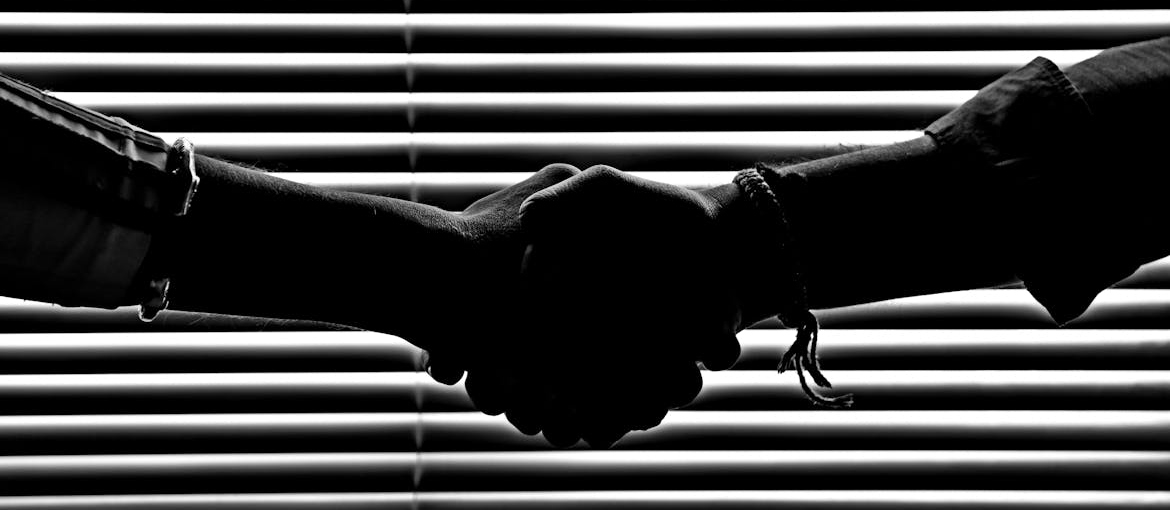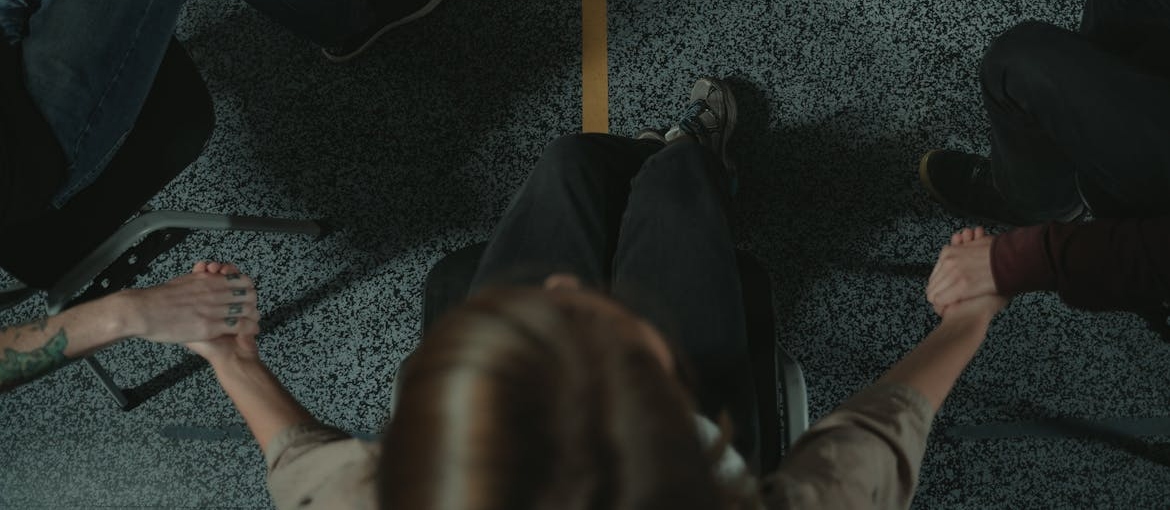Alcohol addiction affects millions, but many don’t know where to turn for help. That’s where Alcoholics Anonymous comes in. This program has helped people stay sober for nearly 90 years. If you’ve ever asked who started AA, or why so many rely on it, you’re not alone. It began with a few people and a simple message: no one has to face addiction alone. Today, it still offers that support. West Virginia Alcoholics Anonymous meetings are one option. Harmony Ridge Recovery Center WV is another. Knowing the roots of AA can help you decide what kind of support feels right.
What Is West Virginia Alcoholics Anonymous?
The West Virginia Alcoholics Anonymous is a 12-step program that uses social connectivity and spirituality to help people fight alcoholism. Alcoholism was first recognized as an issue in the 1930s when it became prevalent among many Americans due to widespread poverty during this time period.

The Christian 12 step program is a set of guidelines that can be used to help identify and understand one’s own problems, accept responsibility, and work on self-improvement. AA meetings in WV help those recovering from alcoholism or other addictions find helpful resources such as sponsorship groups with people who have been through similar struggles. Many also turn to alcohol rehab centers in WV for additional support while attending meetings or during early recovery.
Who Started AA?
Many people ask, who founded AA and why? The answer includes more than one person and more than one reason. The organization has had many influential founders over its history. An affluent man from Rhode Island called Dwight L. Smith Jr. A religious movement known as Oxford Group, New York stockbroker William Griffith Wilson also referred to as “Bill W.”
Akron surgeon Erskine Smith (known then only as “Biff”), and Swiss psychoanalyst Carl Jung all have contributed greatly into what Alcoholics Anonymous stands for today. If you’re new to the program, you don’t have to be nervous for AA—its roots are built on shared struggles and mutual support.
Bill Wilson: The Brainchild of Alcoholics Anonymous
Bill Wilson, commonly referred to as the man who started AA, is often seen as the visionary and founding father of this influential movement. His story begins when he was struggling with the disease of addiction himself in 1935. Bill had been sober for quite some time before that night, but one failed business meeting triggered his deep alcohol cravings. There’s an old claim that raises curiosity: Did the founder of AA ask for whiskey on his deathbed? Some say he did, but others argue there’s no solid proof. Regardless, his legacy remains rooted in helping millions stay sober.
Bill Wilson Meets Dr. Bob
Bill Willson, the founder of AA, had been sober for about five months and traveled to Akron, Ohio in 1935 for a shareholders’ meeting. However, he lost the proxy fight that day and found himself all alone with nothing but time on his hands. He was drawn towards the bar at Mayflower Hotel where Bill immediately attempted looking up another alcoholic only if they would talk him out of feeling so low.
The introduction between Bill W. and Dr. Bob was a long time coming, but the two men finally met when they were introduced by an Akron surgeon who had struggled with alcoholism himself. The meeting proved to be life-changing as both individuals shared their stories about how alcohol affected them personally. They each listened intently to one another’s struggles, which motivated each other into sobriety.
Not too long afterward, Bill moved in with Dr. Bob and his wife. The doctor did relapse after their first encounter but, he took his last drink on June 10, 1935. This date is known as the official date of the founding of Alcoholics Anonymous.

The Oxford Group and Thier Influence on Alcoholics Anonymous
A Christian organization founded by Frank Buchman, the Oxford Group, greatly influenced those who started AA. They believed that alcoholism is a spiritual disease and their solution to living with fear and selfishness was through surrendering oneself over to God’s plan.
The Oxford Group was a small but powerful group of people who came together to explore their spirituality and lead others on the same spiritual journey. They had no need for large buildings or lavish expenses because they believed that God would provide all necessary resources as long as members surrendered themselves completely to his guidance. It is said that their endeavor was led by one sole purpose: “To carry his message so others could do the same.”
The Oxford Group Principles
People often ask, did Christians start AA? The truth is, much of AA’s early influence came from the Oxford Group, a Christian spiritual movement that emphasized personal change through faith and accountability. The group recommended meditation and adherence to Christian principles, pointing out that they are necessary for a spiritual revolution. The six tenets listed were:
- Men need to understand their sins
- Confession is the first step in changing from sinfulness into goodness
- Men can be changed if they want it badly enough (and by God’s grace)
- Once souls have been purified through a change of heart, then direct access with God is granted
- The age of miracles has returned
- Those who do not repent must also help others see this light.
The Oxford Group caught the attention of those working in psychiatry and psychology. In the 1930s, Rhode Island Rowland Hazard sought help from famed Swiss psychoanalyst Carl Jung for his alcoholism. Dr. Jung directed him to The Oxford Group as Rowland’s case could not be addressed through medical means but needed spiritual addiction intervention instead.
Rowland met with Edwin “Ebby” Thatcher, his first introduction in the Oxford Group, and together, they embraced its principles as a path to sobriety. It was a sober and transformed Ebby who showed up at Wilson’s home in November 1934 with a smile on his face, free of the bondage that alcohol can create for one soul.

The Foundations of Who Started AA
Bill Wilson, the founder of alcoholics anonymous, remembers the day that changed his life and planted the seed for the 12 Steps of AA in the Big Book of A.A. In the Big Book chapter, “Bill’s Story,” he describes his view of Ebby’s transformation into sobriety.
Wilson details turmoil he felt, recounting questions of God and the spirit that led to both hesitation and a desire to embrace his friend’s new way of life. Ultimately, Wilson rejected the offering citing his contempt for religion.
“The wars which had been fought, the burnings and chicanery that religious disputes facilitated made me sick.”
It was Ebby’s change, though, rather than anything else that convinced him. Obviously, there had been no power in either one of them at all when it came time to transform their lives with an act as monumental as this. Bill Wilson’s decision to turn his will and life over is an unprecedented recognition of the need for a spiritual recovery for addiction. Bill was coming from both angles, admitting that he could not control or manage his alcoholism on his own while also acknowledging what other people said about him – that this might be more than just alcohol abuse.
The Preconception of the 12 Steps
As Bill became more involved with the Oxford Group, it started becoming clear how difficult recovery is without spiritual transformation. Eventually, the alcoholics in the group gravitated toward Bill, who realized many who found sobriety through the group eventually relapsed.
He started to become discouraged as many members did not have the same revelations that he did. It wasn’t until one friend in medical school suggested Bill stop preaching entirely like before but start talking instead about alcoholism being an illness rather than a moral failing.
This business trip was what lead Bill Wilson to Arkon, Ohio and where he met Dr. Bob. They each shared similar stories and backgrounds in their struggle with alcohol. Bill needed help to keep from drinking whereas Dr. Bob was still struggling to stop.

The 12 Steps are Born
If you’ve ever wondered who came up with the 12 step program, it was Bill Wilson—drawing inspiration from the Oxford Group’s teachings and his own experience. Bill sat up one night with a pencil and pad and started with the six tenets of the Oxford Group as his raw material. At the beginning of this process, he recounts how we wanted to include more than six steps. He speedily wrote for 30 minutes, and when he was completed, he had twelve steps:
- “We admitted we were powerless over alcohol — that our lives had become unmanageable.”
- “Came to believe that a Power greater than ourselves could restore us to sanity.”
- “Made a decision to turn our will and our lives over to the care of God as we understood Him.”
- “Made a searching and fearless moral inventory of ourselves.”
- “Admitted to God, to ourselves, and to another human being the exact nature of our wrongs.”
- “Were entirely ready to have God remove all these defects of character.”
- “Humbly asked Him to remove our shortcomings.”
- “Made a list of all persons we had harmed, and became willing to make amends to them all.”
- “Made direct amends to such people wherever possible, except when to do so would injure them or others.”
- “Continued to take personal inventory and when we were wrong promptly admitted it.”
- “Sought through prayer and meditation to improve our conscious contact with God as we understood Him, praying only for knowledge of His Will for us and the power to carry that out.”
- “Having had a spiritual awakening as the result of these steps, we tried to carry this message to alcoholics, and to practice these principles in all our affairs.”
AA Success Rates
Alcoholics Anonymous Big Book cites a 50% success rate with 25% remaining sober after some relapses. In a 2014 study done by AA, they reported that 27% of the 6,000 members who participated were clean and sober for a year or less. There were 24% that kept their sobriety for up to five years. 13% lasted for as long as a decade. Fourteen percent of the study’s participants lived in sobriety between 10 and 20 years, with 22% reporting they remained sober for more than two decades.
Another long-term study conducted by the National Institute on Alcohol Abuse and Alcoholism (NIAAA) found that individuals who went through an alcohol abuse program and regularly went to AA meetings had a better chance of staying free of alcohol than those that only went to treatment.
The American Society of Addiction Medicine (ASAM) states that approximately 10% of the people who become part of a Christian 12-Step program enjoy long-term success in their recovery; however, because there is no impartial data available on Alcoholics Anonymous’s published rates due to the anonymity or unwillingness from members within these groups as well as unrecognized cases by ASAM itself.

The Christian 12 Step Program: How Does Spirituality Help Fight Addiction?
Humans search for meaning in life, and everyone’s reason for it may be different. It’s also not just one thing that drives the need, rather a common theme of what gives us purpose. Numerous studies have shown that when an individual has more focus on their own personal sense of purpose or something greater than themselves, this influence can positively impact addiction treatment outcomes. Those who started AA understood this impact.
This doesn’t necessarily mean having a higher power, as many people see belonging to something bigger than themselves as giving them some sort of strength they are lacking. Others find their direction from seeing how the smallest actions make larger impacts on society.
Addiction is isolating and lonely. Working your way back to being part of a community is key to getting off a self-destructive path. Giving back and sharing experiences helps build confidence and a network of support. Addiction has probably caused isolation due to bad behavior, dishonesty, or shame. Starting small by connecting with others in a Christian 12 step program (like West Virginia Alcoholics Anonymous) can be step one towards recovery.

Are You Looking for a West Virginia Alcoholics Anonymous Meeting?
Alcoholics Anonymous, the group that has become synonymous with recovery and lasting sobriety since its inception roughly 80 years ago, is likely to remain a cornerstone of many people’s aftercare programs. As science and psychology evolve in understanding addiction more deeply, AA meetings in WV may change somewhat but will always be instrumental for some individuals.
Why AA Still Matters Today
Alcoholics Anonymous has stood the test of time because it speaks to something many people need—connection, honesty, and purpose. It started with a few people who understood what addiction feels like and were willing to help each other stay sober. If you’ve ever asked who started AA, the answer goes beyond just one name. It began with shared experience and grew into a global support network. Today, the message is the same: no one has to recover alone. AA meetings in West Virginia are still changing lives, just like they did in the 1930s. We are here to help support individuals as they commence on their overall journey toward recovery from substance abuse. If you or someone you love is looking for help in their fight against alcohol abuse, reach out to our team.



